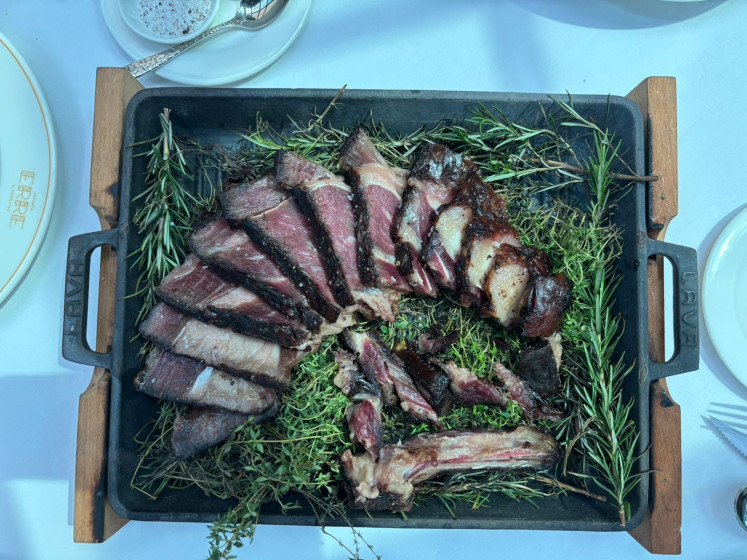Popular Reads
Top Results
Can't find what you're looking for?
View all search resultsPopular Reads
Top Results
Can't find what you're looking for?
View all search resultsExistential debate in US food industry: What is meat?
A debate about US food labels transpired on plant-based "meat", with key US cattle industry players sought to crack down on marketing of proteins made from soy and other plant-based substances.
Change text size
Gift Premium Articles
to Anyone
Can a hamburger or steak be labeled "meat" if it is plant-based?
That question has sparked a debate about US food labels as key US cattle industry players have sought to crack down on marketing of proteins made from soy and other plant-based substances.
Jessica Almy, policy director of the non-profit Good Food Institute, which promotes meat-alternatives, said labels must state clearly if a product is made from soy or another plant, but they usually make sense in context.
"Regardless of whether it is made of beef, soy, or wheat, a burger tells you it can be cooked on a grill, placed on a bun, and served with mustard and ketchup," she said.
Almy also sees no alternative to labeling as "meat" new products made from animal cells grown in a lab. Such protein offerings are expected to hit US supermarkets and specialty shops within the next few years.
"These are muscles and fat. It would be extremely misleading to call it other than meat," said Almy said.
That stance has enraged some in the traditional meat industry, spurring the US Cattlemen's Association to file a petition to the Agriculture Department to reserving the term "meat" or "beef" to protein derived from slaughtered animals.
"Labels indicating that a product is 'beef' should be limited to product from cattle that have been born, raised and harvested in the traditional manner," the petition said.
The cattle association, which represents ranchers and cattle breeders, said it wants to avoid a similar outcome to the dairy industry, which has seen alternative products made of soy, almond and other non-dairy sources take 10 percent of the "milk" market.
"We started seeing these products put into the meat shelves in the grocery stores with packaging, label and design misleading the consumers into believing that perhaps it is a healthier version of the traditional meat or perhaps this is real beef," said USCA spokeswoman Lia Biondo.
"We are trying to preempt the issue, to prevent what the dairy industry is going through."
Read also: Indonesians have no stomach for artificial meat, study shows
- Industry split -
For now, alternative meat products represent a tiny portion of US protein sales. But the items are becoming more widely used, and not just by vegetarians.
Startups in alternative food today offer products that do a much-improved job of simulating the taste, texture and smell of traditional meat. Industry players say it is only a matter of time before these options are made with animal cells, further complicating the picture.
While the USCA petition has won some support, not all in the food industry have signed on.
The Farm Bureau generally supports the idea behind the petition, but does not want oversight of alternative proteins to shift outside of the Agriculture Department.
"If it is not called meat, what is it then? We want to retain the jurisdiction under the Secretary of Agriculture," said Dale Moore, who is in charge of public affairs for the Farm Bureau.
The National Cattlemen's Beef Association, which counts among its members meat distributors and processors, has not signed the petition either.
Chris Kerr, investment manager at New Crop Capital, a venture capital firm investing in alternative food companies, said efforts like the USCA petition illustrate a head-in-the-sand approach to shifting tastes.
"We are looking at a major behavioral shift by a whole segment of the consumer population, driven a lot by the millennials. They are very open to plant-based food, to being flexitarian," he said.
"The industry can fight this, but they are arguably fighting against themselves because ultimately most meat producers will have some stake in this and it will be a successful outcome," he added.











